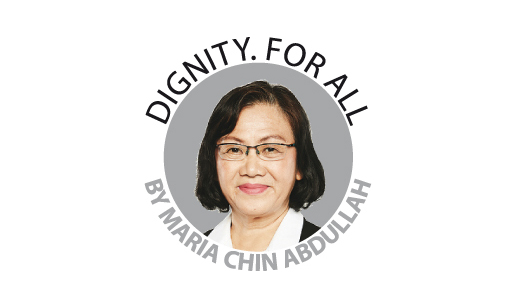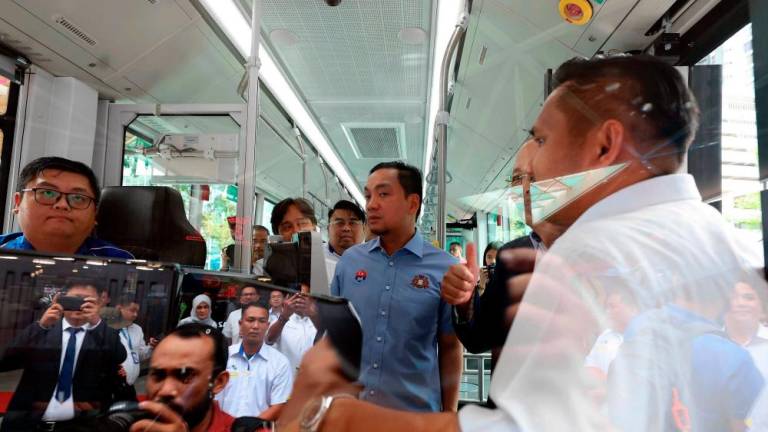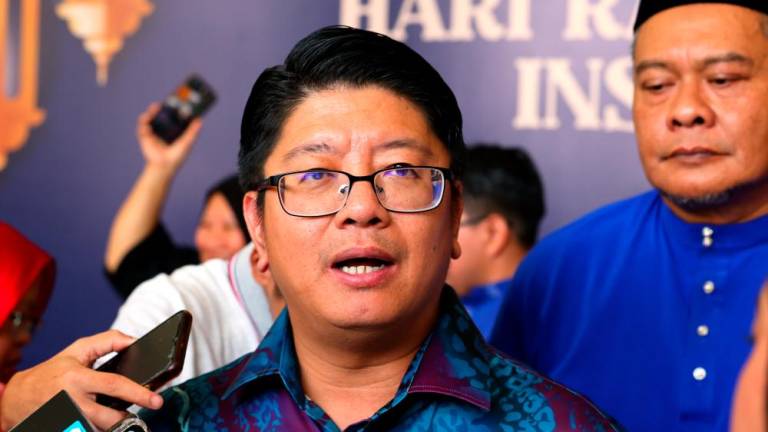MORE than eight months have passed with much talk and anticipation for Pakatan Harapan (PH) to implement its institutional reform.
I, too, have been harping on this on numerous occasions but the government needs to, and perhaps it does, view the reforms as a necessity, being timely and constructive for transition into a system that upholds core universal principles of democracy.
It is about setting standards in line with the Federal Constitution and international instruments on human rights and governance.
Institutions need to be restructured or improved to promote integrity, decentralised, independent, redistribute resources fairly, and ensure participation and representation. It is about the painful and difficult issues, i.e. involving the rakyat and making leaders, institutions, political parties, and corporates accountable.
When Bersih 2.0 took to the streets for Bersih 4.0 rally in 2015, its key demand was to implement 10 institutional reforms. They included limitation to the concentration of executive power of a single individual, breakdown of rule of law, manipulation of elections, and repression of dissent.
The PH manifesto incorporated these into 21 governance reforms and, if implemented well, will give investors confidence in the administration and encourage them to invest. Undeniably, some of the proposed reforms are a work in progress but all being said and done, PH must be seen implementing the rest.
Malaysians want confidence in the governance of this country. They need to know that they will get a chance to defend their cases in open courts, guilty or not; they will not be beaten when arrested; their healthcare issues can be resolved at reasonable costs and facilities are within easy reach; and their housing needs or lack thereof are solved.
The government has to be there to care for their well-being and be able to motivate them to reciprocate as responsible citizens.
Reforms are held close to everyone’s hearts because its implementation will mean seeing real justice in progress.
It narrows income gaps and in future works towards addressing B40 issues and gaps between the haves and have-nots.
Providing better housing, environment and facilities with support for community involvement will require intervention from federal, state and local authorities – a wholesome involvement.
A national affordable housing council, as promised, can fast forward the building of affordable houses.
Dilapidated schools must not be the bane of the education system, while problems like poor management, ever-changing curriculum, inability to build students’ critical intellect and confidence, and vacillating between English and Bahasa Malaysia whenever there is a change of government does not help build any first class intellectuals in Malaysia nor does it help make government schools the first choice of its people.
Seeing the government taking steps to resolve the injustices recognises, gives confidence and helps to build trust among all citizens and their public institutions.
To start with, reports by the Institutional Reform Committee and Council of Eminent Persons (CEP) have to be made public to fast forward the reform agenda and as part of the transparency and accountability process.
Some of the key reforms that I would like to see happening are as follows:
> Limit the term of office of the prime minister to two terms to end centralisation of prime ministerial powers and hence institute checks and balances to future abuse of powers. While the PH government may not hold a two-thirds majority, it is necessary to raise it at the Parliament because aside from fulfilling PH’s commitment, it will democratise the separation of powers.
> Separation of roles between the public prosecutor and the attorney-general.
> Restore public trust in the judiciary and legal institutions. Review appointments of judges, their salaries, written judgments and restore their independence. In the National Judicial College of Australia, courses are offered to judges and magistrates to improve on writing better judgments, delivering written and oral judgement, on being a judge and raising awareness on specific national issues.
> Review or abolish draconian laws that undermine the rights of citizens, including a Freedom of Information Act and abolishing unjust detention.
> Restore the integrity and the quality of debate in Parliament. While Parliamentary Select Committees have been formed to deal with various issues, there are other fundamental changes required. Introduce prime minister and opposition question time to promote vigorous debates on government policies; effective and evidence-based research with strong library and data support. Green and White Paper should be re-established; and the Parliament Services Act should be reinstated to give independence to the operations of the Parliament. Reports from Human Rights Commission (Suhakam), the auditor-general, Public Accounts Committee, and the annual report of Government-Linked Investment companies, Government-linked companies, including Petronas have to be debated in Parliament.
> Initiate a political financing law to manage and control, in a transparent and accountable manner, excessive sources of funds and spending by political parties, individuals and institutions.
> Re-establish principles of accountability, human rights and democratic governance in the army and police force. The 22 recommendations in the Report of the Royal Commission on Police Powers and Procedures go beyond just the setting up of the Independent Police Complaints-Misconduct Commission (IPCMC) as they cover the well-being and statutory benefits of the force.
> Lastly, institutionalise democratic governance into local government for better delivery of services, just and sustainable rural/urban development.
To be fair, we have seen progress in other institutional reforms, including financial laws to provide check and balance and some semblance of social safety net programmes such as I-Suri as savings for housewives, My100 and My50 to reduce transport costs.
However, a game plan, with priorities and a timeframe, has to be in place to ensure that the reform agenda is not forgotten.
Comments: letters@thesundaily.com
















